Hong Kong-China: A growing football rivalry or just politics?
- Published
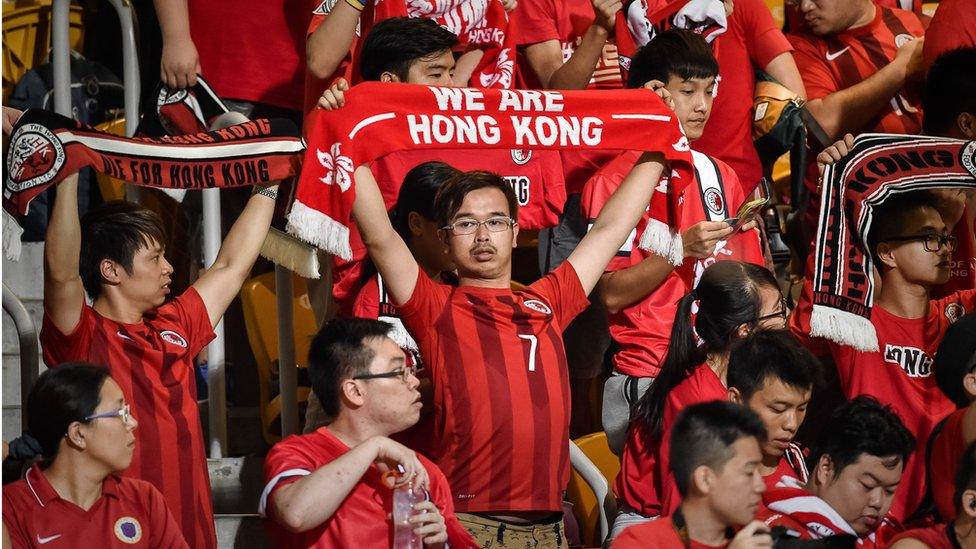
'One country, two systems' - and now two distinct football identities too
Around the world, there are legendary, dynastic rivalries in football.
Think Turkey versus Greece, England versus Germany and Brazil versus Argentina.
And now, as the two sides face each other in a crucial World Cup qualifier, Hong Kong and China look set to join the list of lasting football rivalries.
The two sides have been playing against each other since the 1970s, without either side much troubling the giants of the game, or each other.
But in recent months, tension between the two sides has been building.
For Tuesday's match at Hong Kong's Mongkok Stadium, local media reports that more than 1,000 police officers will be deployed.
If true, it would be an unprecedented number for a sports match in the territory.
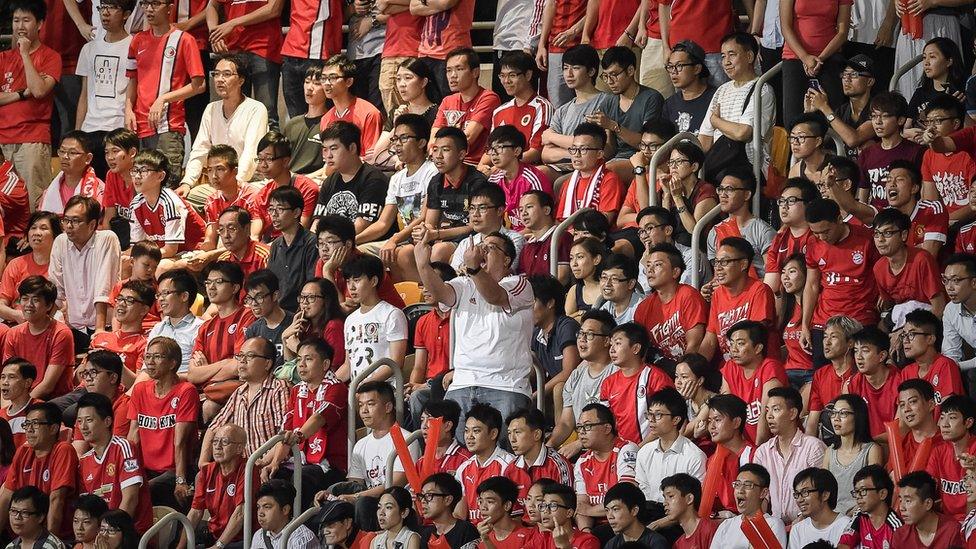
With fans around the world known for boisterous support, could it be that football is simply maturing in Hong Kong?
And for the first time, Hong Kong and mainland fans will have to use separate entrances, Hong Kong Football Association Chief Executive Mark Sutcliffe told BBC News.
They will also be segregated - standard practice for football matches in most parts of the world, but a novelty in Hong Kong.
"Fans from both sides will be clearly separated, even using different washrooms. There are very few opportunities for them to clash inside the stadium," the association's chairman Brian Leung told journalists.
Mongkok Stadium can hold around 6,000 spectators but mainland Chinese fans have been allocated only 500 tickets.
Tickets reserved for local fans sold out quickly, with the website of an online ticket seller reportedly crashing under the weight of high demand.
But fans are not the only ones making sure to book themselves a seat in the stadium.
Local and international media, and a team from Fifa, will be out in force too: watching both sides - and their fans.
Last month, football's governing body fined the Hong Kong Football Association 40,000 Hong Kong dollars ($5,160; £3,400), after local fans booed the national anthem "March of the Volunteers" during a qualifier against Qatar in September.
Hong Kong, as a semi-autonomous Chinese city, shares the national anthem with mainland China - but increasingly little else.
Political tension between Hong Kong and China has surged in the past five years, culminating in last year's pro-democracy "Umbrella Movement".
But the booing began only during the current World Cup campaign.
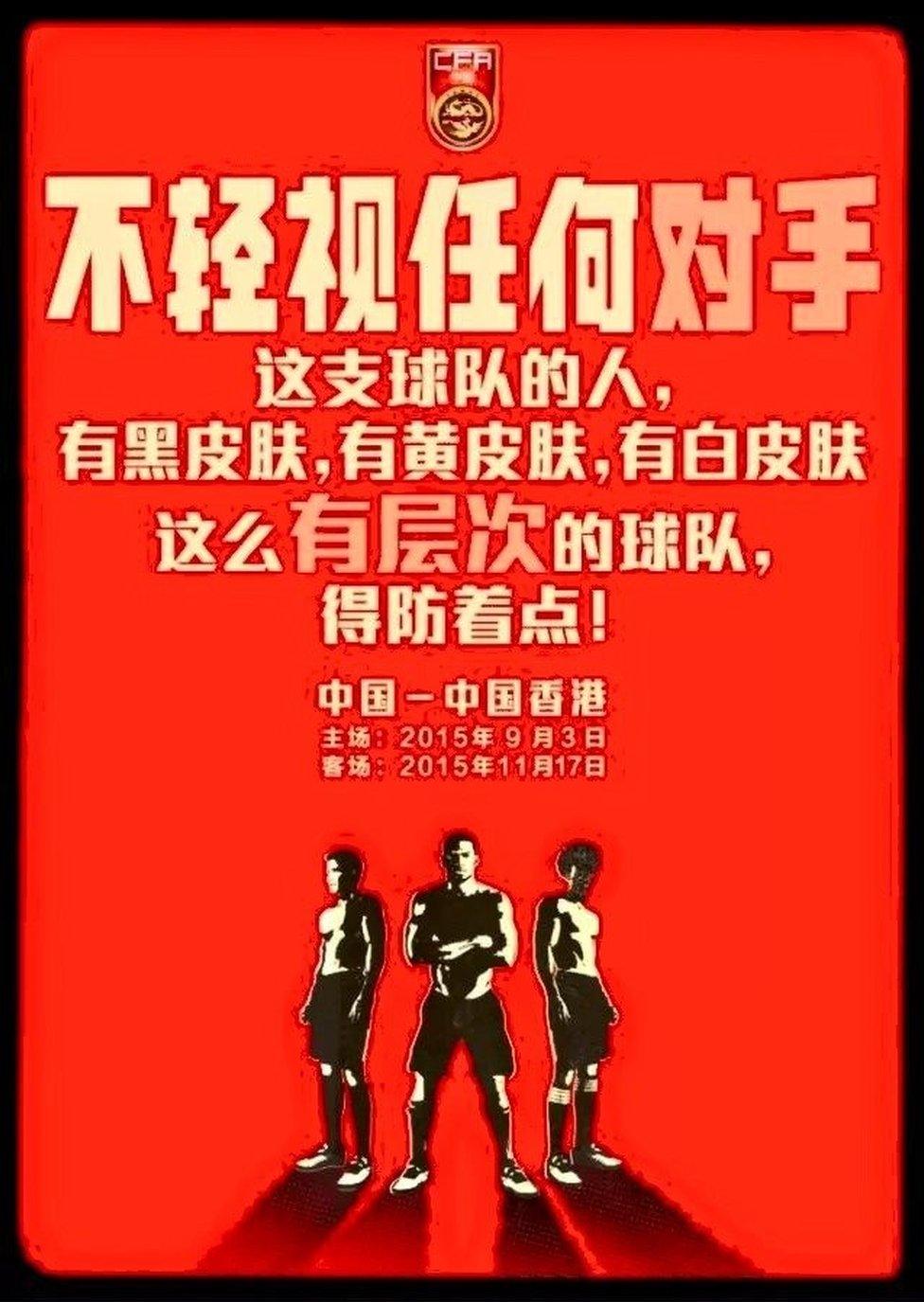
Racist or just rivalry? The CFA poster accused of contributing to the tension
Mr Sutcliffe traces the surge in tension to June, when the Chinese Football Association (CFA) issued a promotional poster ahead of the qualifier against Hong Kong.
The poster shows images of three players and warns: "This team has players with black skin, yellow skin and white skin. Best to be on guard against such a multi-layered team!"
Unsurprisingly, some Hong Kong fans derided the poster as racist.
Following the controversy, the booing began during a qualifier against Bhutan, and continued until last weekend's friendly with Myanmar.
Mr Sutcliffe believes it is the first time Fifa has fined a team for booing its own anthem, and he believes the booing will happen again.
"We've been requesting that fans respect the anthem. That they behave, generally," he says. "But at the end of the day, it's very difficult when you have a crowd of 6,000 people, and there is an element in that crowd that wants to voice their opinion. It's very difficult to stop them."
Political tension has commanded the narrative of the qualifier so far.
But die-hard football fans in Hong Kong are also hoping to watch a genuinely thrilling game.
They desperately hope the home side can beat their much higher-ranked rival, the way it memorably beat China during a World Cup qualifier in 1985.
- Published6 October 2015
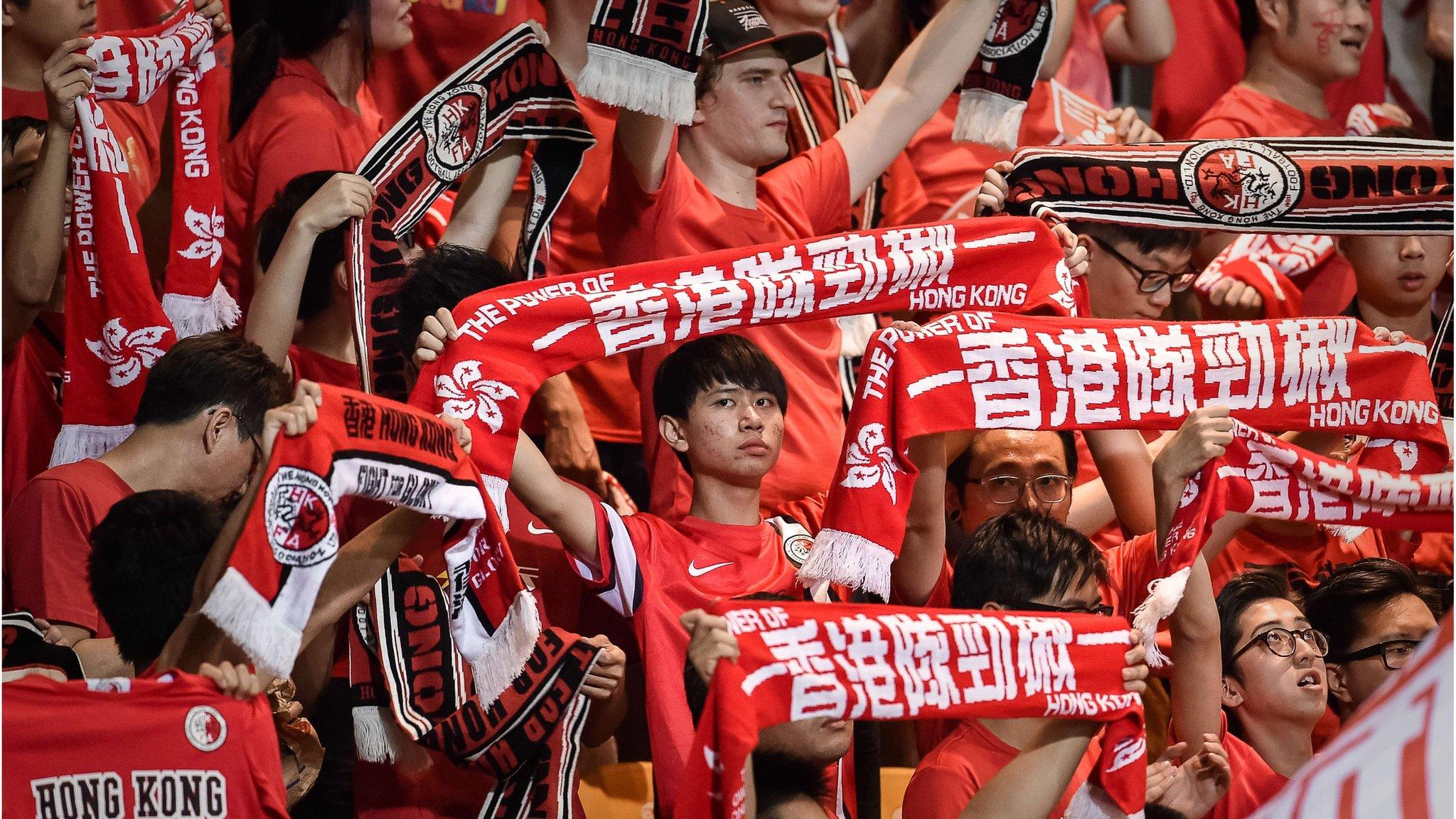
- Published6 October 2015
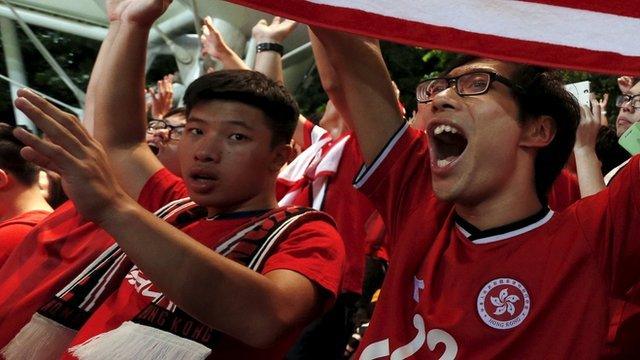
- Published27 September 2015
- Published21 January 2016